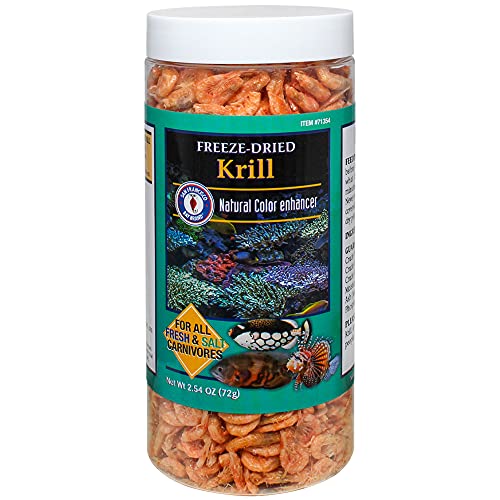MikeS said:
The reef isn't nutrient poor at all, but the water itself IS. Available nutrients are quickly tied up by the vastly complex food chain on the wild reef, and what little may remain is diluted greatly by the vast volume of water we are talking about here, rendering the water itself basically devoid of saturated nutrients on the reef.
Well, yeah, pretty much, but this is true part of the time, in fact, a large part of the time, but not all of the time. High nutrient levels are experienced in nearly all wild reefs with variable frequency depending where they are, and these periods of high nutrient saturation are usually rather "short lived".
Now since we are trying to provide an environment in our tanks, where our corals, who have evloved and adapted to this type of environment, wouldn't it make sense to duplicate these conditions as closely as possible?
Yes, it would, but this attempted duplication should actually represent all of the nutrient satuaration conditions that occur in wild reefs, and not only the most common condition, which is of course "nutrient poor". Nutrient rich occurs as well, for short periods of time. This includes dissolved nutrients of course, as well as "solids".
Can you do it with bacteria?
Yes.
Not really, you are simply transforming and recycling these nutrients back into the system in most cases.
Well, that is true in many cases, but not in most cases, there are a lot of "cases". Look at LdrHawke for one with his version of "vodka dosing". He is pulling bacteria out of the system. This is a specialized system that he runs, and I understand that he is "dosing", but he is creating a "net export" just the same.
I am not endorsing that system here, but it is an example, just the same.
This isn't to say they are not very important, they definatly are necessary for detoxification, but the bottom line is that they don't really export nutrients.
"Bottom limes" are very interesting animals, they tend to "morph" every 3 to 9 months.
Sure...some bacteria and their bound nutrients are removed with skimming, and bacteria in a new DSB will reduce nitrate into free nitrogen that gases out of the tank, but even this process will taper with time, and ammonium will be produced instead, simply recycling the nutrients back into the tank.
Now that is a really big "animal", and TIME is an extremely "relative" term. Recycling is certianly not "simple".
Yes, I think we are all in agreement that bacteria are an absolutely essential link in the chain.
They sure are.
But again, tiny glass box vs. the wild reef...:lol: .
You still want to duplicate these conditions as closely as possible, right?
The bacteria found in the sea grass beds and mangrove swamp are in reality mostly feeding on leftovers, simply another organisim in a vastly complex food net, so to speak.
Exactly, and one man's junk is another man' treasure, so it is in the reef, and the ocean, and planet earth, and in the universe.
This is a "universal truth".
The largest part of bacterial activity as it pertains to the food chain on the reef does not take place on the reef itself, or in the swamps or grass beds, it takes place in the deep, open water. And even here, these nutrients are not reduced, they are recycled.
Really, I would like to hear more about that. I think you might have fallen off your stool here.
Why remove it? Because you have these nutrients in a huge excess compared to the wild reef! Again back to the tiny glass box vs. the ocean...
Yes, let's remove it!
The bioload in even the most lighty stocked reef vs. gallons of water is many, many, many times greater than what you see in the wild, period. You are always going to be dealing with nutrients in excess, by the nature of the tank.
You have not specified "dissolved" VS "solid" nutrients here, I think it would be prudent to do so.
You can skim, run carbon, do regular water changes, ect, ect, and you are still going to be dealing with an excess of nutrients compared to the reef in the wild.
If you have this "excess" then quit over feeding.
Sure, you may be removing bacteria, shrimp fry, planktonic life, ect....but you will be providing the corals with an environment they are most adapted to in the wild.
I guess you're talking about skimmimg here.
Personally, I think it is impossible to strip a tank of nutrients entierly by using mechanical means.
That impossible "thingy" is another big animal ( or word ).
MikeS said:
The skimmer keeps producing skimmate, doesn't it? Hmmm....I wonder why....
Are you talking about your tank or someone elses? They aren't all the same you know.
Reef tanks can and should be run differently depending on the animals that are kept in them.
Broad generalizations should be avoided as to appropriate Reef Keeping practices, in order to avoid confusion for new hobbyists, and to maintain accuracy.
I hope this is helpful.
Thanks to all, > Wave98



































































